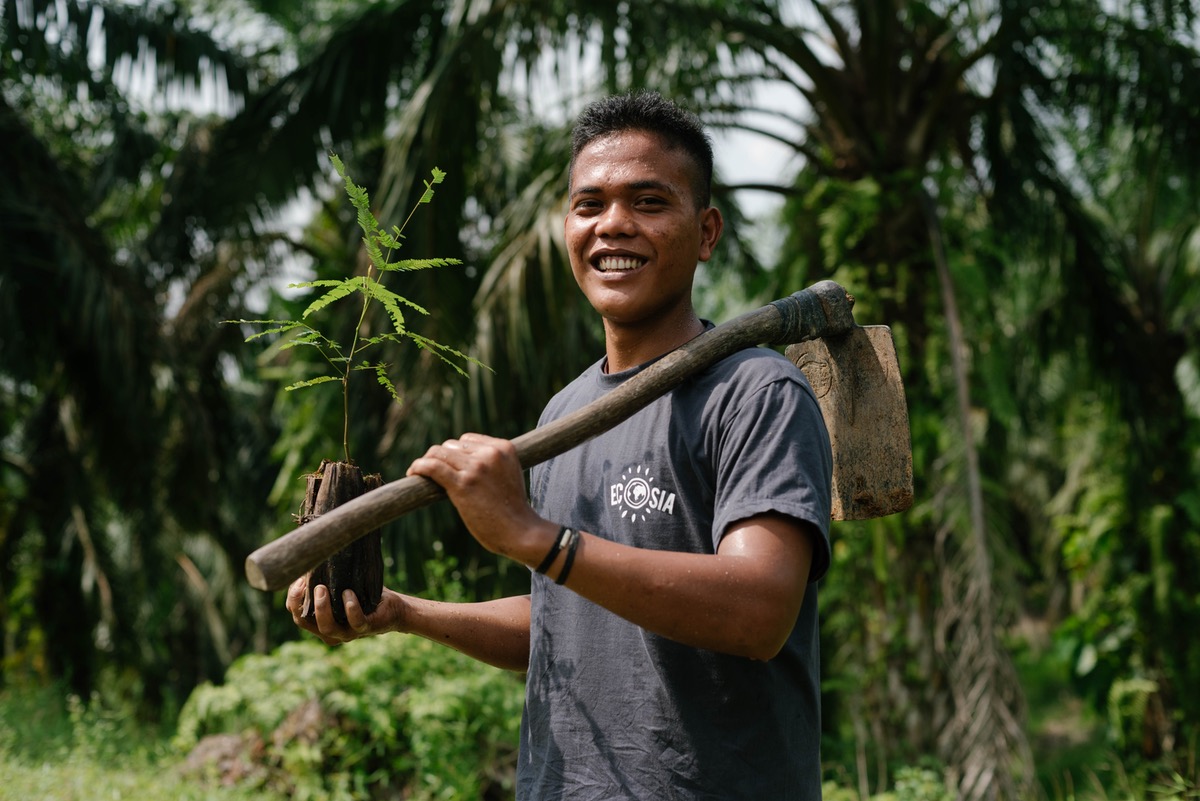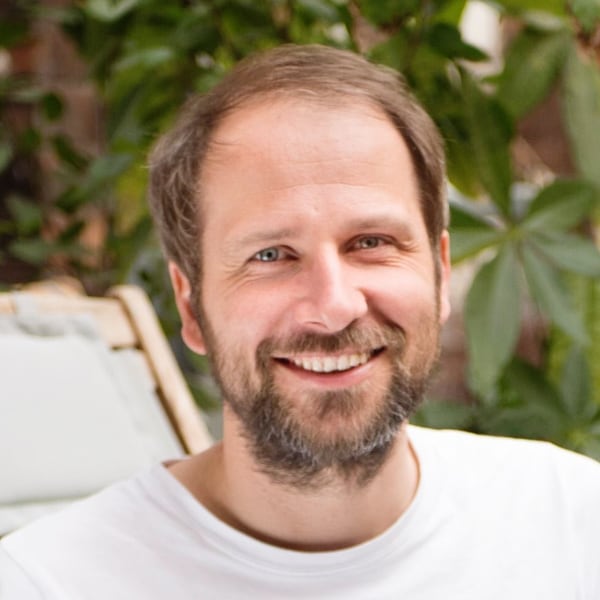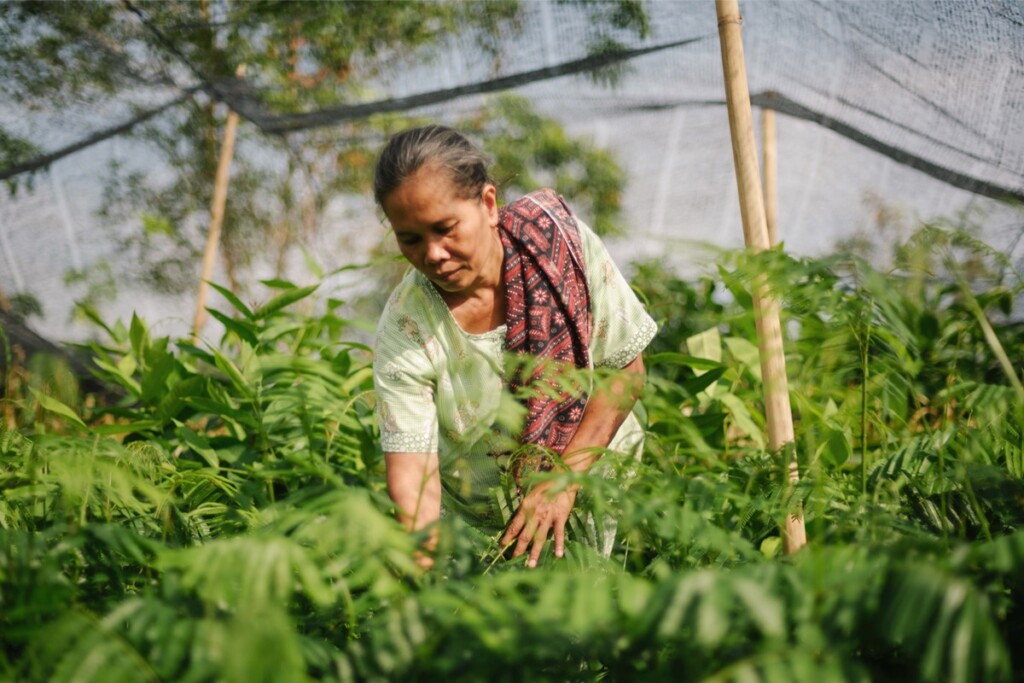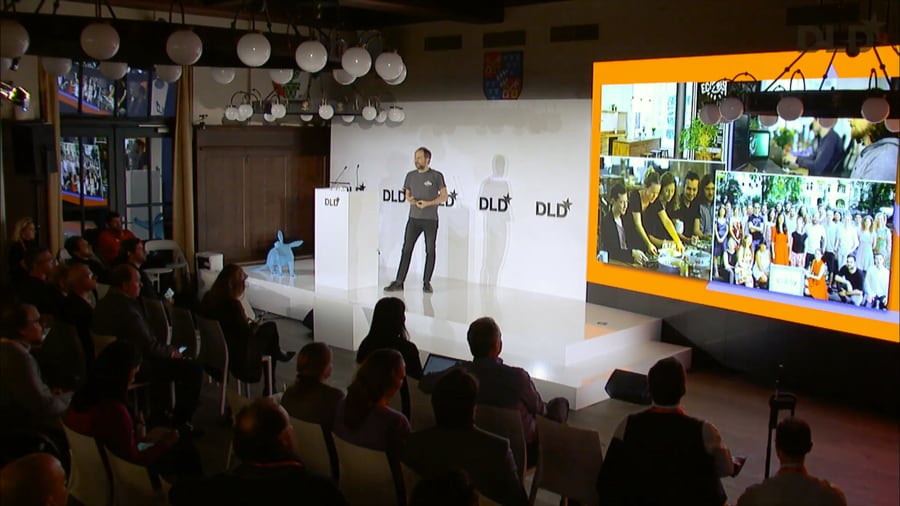
Fighting Climate Change, Click by Click
Search engine Ecosia uses most of its income to plant trees. Founder Christian Kroll speaks with DLD about sustainability and running a business that puts purpose before profits…
Meet Ecosia, the search engine that plants trees: The world is losing forests at an alarming rate – partly through wildfires and other natural causes but mostly because humans are cutting down trees to make room for farms or settlements. Berlin-based search engine Ecosia uses much of its income to support tree-planting projects. The goal: fight climate change and support sustainable business models for local communities in developing countries.
In 2009, German entrepreneur Christian Kroll had an idea: How about using the ad revenues of a search engine to finance fighting climate change? As a student he had run a website to make money on the side – only to realize, as he remembers, “that I was actually giving most of the money I was earning back to Google to advertise and generate traffic.”
With Ecosia, he wanted to turn the concept around: Run a search engine himself and use the income to plant trees. The massive loss of rain forests had started to worry him when he spent a year living in Latin America. “I was driving past these huge cattle grazing farms and soy plantations”, Kroll recalls, “and when I came to the rain forest I realized, ‘Wow, this green desert used to be a paradise!’”
He decided to create a business dedicated to reversing the negative effects of deforestation. The loss of millions of trees each year accounts for an estimated 12 percent of greenhouse gas emissions annually, according to the U.N. “But we can reverse some of the effects by planting trees”, says Kroll. “I wanted to do something that helps our planet, helps animals and nature, but also really helps people to build a better future for themselves.”
DLD spoke with Kroll to find out more about Ecosia’s purpose-business model, the company’s remarkable growth and its ambition to become as big as its biggest competitor.
Most people are happy using Google. Why should they switch to Ecosia?
You could say that we offer something that Google can’t, which is the additional value proposition that we’re planting trees with each search. And if you care about the climate, then that has a lot of value for many users.
How do you make search pay for planting trees?
We work with Microsoft’s search engine Bing. Basically we have a fixed cost per search query and then we generate income through advertising, just like Google and Bing itself – and ideally the advertising income is higher than the cost per search.

Christian Kroll
Founder, Ecosia
This is a paragraph, one or more lines of text. Each paragraph is displayed in a new line.
Where are most of your tree projects?
In developing countries in the tropics, predominantly Africa and Latin America, because in those areas you can make the biggest impact per euro invested. We also have a few projects in Indonesia and we have one project in Spain. Desertification and deforestation is a problem in Europe as well. Even here, around Berlin, we’re starting to have deserts. We sometimes think that these problems are far away but they can be very close to us. It’s just that in other areas it’s even more urgent than here.
Can planting trees really make much of a difference?
When we say “tree planting” we actually mean a lot of things. We try to see everything in a social context. If you want to make sure that the trees stay standing you also need to make sure that these trees are valuable to people’s lives. Usually that means they need to create an income for people.
That creates some complexity because you need to educate people around the project. You need to ask, what is it that people need? Often they’ll answer, “I need access to clean water, I want my kids to go to school, I want to have health and security.”
Trees, fortunately, can indirectly help with a lot of these topics. So we’re addressing a lot of things through positive secondary effects.

A woman in Indonesia looks after newly planted trees. In 2019, a study by ETH Zurich researchers found that recreating forests could significantly help to reduce CO2 emissions. (Photo: Shane Thomas McMillan for Ecosia)
How long did it take you to start making money?
The first years were financially really difficult, especially because in the beginning we wanted to plant as many trees as possible. So we said that we would give 80 percent of our revenue away. And if you only make a very small amount of money, there’s not much left, of course.
So for the first few years I couldn’t pay a salary for myself, and the people who worked for us – mostly as freelancers – accepted very low rates because they liked the idea. Or sometimes I would ask friends, “Hey, could you please translate that for me? Or do this design for me?”
A business built on idealism.
Yes, for a very long time. And we’re still looking for idealism when we hire people. But now we can at least afford to pay market salaries. For the past two or three years the numbers have really gone up significantly. If you look at our financial reports you can see that we used to give, say, 100,000 euros per month to tree planting, and now it’s over a million.
Why do you think you’ve seen such growth lately?
People have become really sensitive to the topic of climate change. It’s much easier now to communicate what we’re doing. Earlier on, we also had to convince people that climate change is a really, really urgent problem and that we need to do something. But also it’s just the typical effect of exponential growth. Suddenly the public perception is, “Wow, there’s Ecosia in the world!”
How do you refine the search results you get from Bing?
What we’re trying to do with our search algorithms is also to help users make better decisions. If I search for “flight from Berlin to Munich”, for example, then Ecosia could recommend that I take the train instead and avoid hundreds of kilograms of CO2 emissions.
Google could also do that but it might means losing money. We can make different kinds of decisions because we’re a nonprofit. We don’t have to maximize profit. We can actually maximize whatever we think is best – not only for the user but for everyone on the planet. And not only this generation but also following generations. That’s our goal, and I think there are a lot of people who subscribe to that vision as well.

Christian Kroll
Founder, Ecosia
“We turned Ecosia into purpose-driven company which means it’s impossible to sell the company.”
What can others can learn from Ecosia’s success?
Many people think we’re planting trees to make money. That’s not the case. It’s the opposite, actually. We’re making money to plant trees. That’s the core idea of why we exist and why people work for us. A lot of big companies talk about, “Everybody’s asking for a purpose.” If they don’t deliver, some of their employees leave – and many of them come to us.
We also turned Ecosia into purpose-driven company which means it’s impossible to sell the company. It’s impossible to take profits out of it, and it’s also impossible that any big, external corporation would ever take control of Ecosia. Basically we made ourselves completely valueless. Which also means that I will never become rich thanks to what I’ve built here. [Laughs.]
That doesn’t seem to bother you.
I didn’t start this to become rich. I earn a good salary, and I’m happy with that. And I talk to a lot of people now who think like that as well. I think we live in a saturated society – and I think there’s a whole new generation that wants to rethink capitalism along the lines of our model, which means putting the purpose front and center. Because the turbo capitalism that we have at the moment is really destroying our planet and we need to find an alternative.
Any concrete ideas?
We want to provide green online shopping soon. Hopefull still this year. And we will partner with others, so we won’t build our own e-commerce platform. That’s another thing where we’re different from Google. We don’t want to own and control everything, we see ourselves more as a partner in a network.

Christian Kroll
Founder, Ecosia
“I don’t see why we shouldn’t be bigger than Google at some point.”
You’ve planted some 81 million trees so far. Is that enough?
Every year, we lose around 10 billion trees on the planet, so there’s a lot of room for improvement. But the potential is also really big. If we were the size of Google, then we could easily stop deforestation on the entire planet and massively grow new trees so that to a large extent we could solve climate change.
That sounds very ambitious…
Our potential gives me a lot of hope, and I personally don’t see why we shouldn’t be bigger than Google at some point. That may sound optimistic but we’ve gotten so far that I think the most difficult times lie behind us. Let’s see where we are ten years from now.
You are currently viewing a placeholder content from Default. To access the actual content, click the button below. Please note that doing so will share data with third-party providers.
More InformationIn most countries, forests cover less than 50 percent of the land, as this interactive chart by the World Bank shows. To see data for specific countries, zoom in and hover with your mouse pointer over the map.
Are you concerned that your message might resonate only with a limited number of people?
I think we have a competitive advantage that Google can’t copy. Google will never be as fair, green, nice as we are. We want to appeal not only to people who care about climate change but in general to people who care.
Maybe people care about girls in developing countries. Well, we’re also helping in that respect. Our core value at Ecosia is compassion. So people who care about the well-being of others should use Ecosia – and I hope that will turn out to be the majority of people on the planet.
What are you adding with Ecosia to society?
Millions and millions of trees, along with an alternative search engine that really fights the monopolist and helps you make better decisions.
Trees are good for people in areas where we are planting them, providing food, income, water, a lot of climate resilience as well to weather events like floods, droughts and so on. But we’re also trying to change the system beyond that. If people share our goals, then they should start using Ecosia.

7 x 10 = Sustainability
By loading the video you agree to the privacy policy of YouTube.
You are currently viewing a placeholder content from YouTube. To access the actual content, click the button below. Please note that doing so will share data with third-party providers.
More Information

